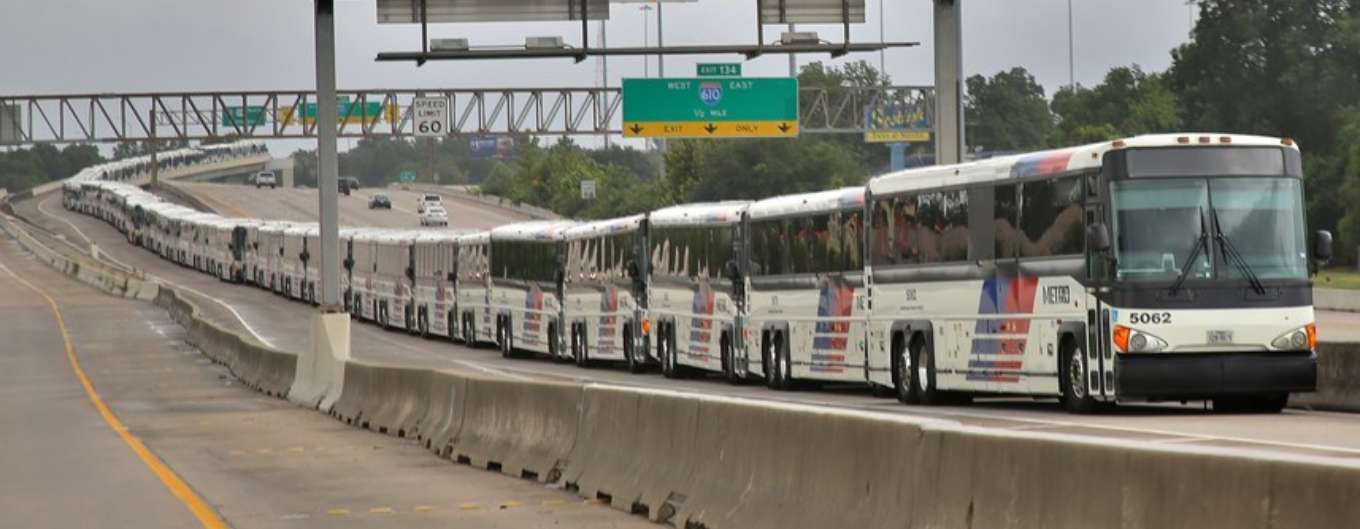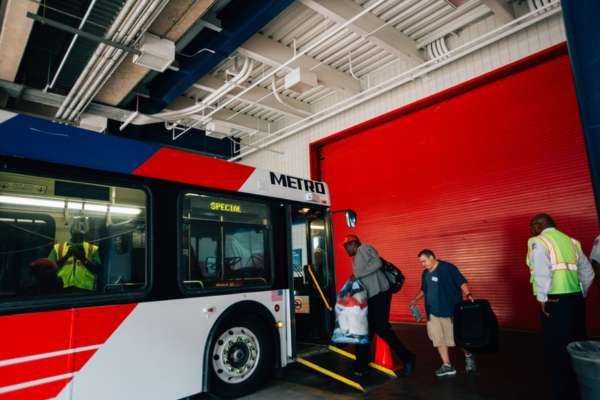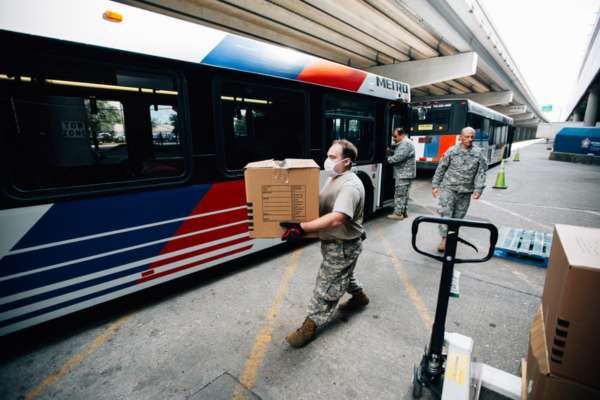August 2025
METRO on the Frontlines of Houston's Hurricane Preparedness

Hurricane season is a reality Houstonians face every year from June 1st through November 30th. While the dates never change, the storms always do, bringing uncertainty, disruption, and sometimes devastation. Power can vanish in an instant, roads can flood overnight, and daily routines can be upended without warning. The only way to weather these challenges is through preparation, and knowing what resources are available before disaster strikes.
Preparedness begins at home. A well-stocked emergency kit ensures that families can get through the first hours or even days of a disaster without scrambling for supplies. Recommended items include shelf-stable food, water, first aid supplies, medications, batteries, flashlights, a manual can opener, and a weather radio.
Richard Herrera, METRO’s Emergency Management Officer, stressed the importance of acting before a storm is imminent.

“Disasters are a time of fear and stress, but if you prepare ahead of time, you’ll be ready to act when it matters most. Don’t wait until the grocery or hardware stores are empty,” he said.
Updating emergency kits at least once a year, or sooner if there are changes in the household, such as a new baby or pet, is also important to stay ahead and be prepared.
For residents with mobility challenges, medical needs, or communication barriers, preparedness also means ensuring they are registered for extra help. METRO has teamed up with the City of Houston’s 311 service to coordinate emergency transportation assistance. The State of Texas Emergency Assistance Registry, better known as STEAR, helps first responders to locate and assist vulnerable residents following an emergency.
“Let me yell this from the rooftops—once registered and verified, local first responders will knock on your door to verify you are safe!” Herrera emphasized.
Preparation extends beyond individual households. METRO is a critical partner in the City of Houston’s emergency response protocol, working closely with city, county, and regional agencies to help people move safely during and after severe weather. When conditions stabilize following a storm, METRO activates a multiphase plan for emergency bus routes. Teams of bus operators are deployed to drive their routes, inspecting for downed trees, debris, flooding, or other hazards that could put riders at risk. Only when routes are deemed safe does service begin.
“This on-the-ground assessment is vital to determine if roadways are safe,” Herrera explained. “Trust METRO to get you going.”

Another key piece of disaster readiness is knowing when to be on the roads. Evacuation orders are issued by elected officials after careful analysis by emergency professionals. Acting early and following instructions is critical to stay safe.
“Weather professionals will provide a description of the dangers involved, and elected officials will tell the public if an evacuation is warranted. We don’t want a freeway system locked down by enthusiastic people trying to leave, who aren’t actually in danger,” Herrera cautioned.
While no one can predict the strength or path of every storm, Houstonians can take steps today that will make a difference tomorrow. Building an emergency kit, updating it regularly, making a plan for the whole family, and knowing where to turn for mobility assistance are simple but powerful ways to stay safe.
METRO is committed to keeping the region moving alongside its partners to help residents get to a safe location.
As Herrera put it, “We work here; we live here. METRO is proud to be part of the team that helps keep Houston moving, no matter the challenge.”

 Google Chrome
Google Chrome
 Safari Mac OS
Safari Mac OS
 Mozilla
Mozilla
 Microsoft Edge
Microsoft Edge